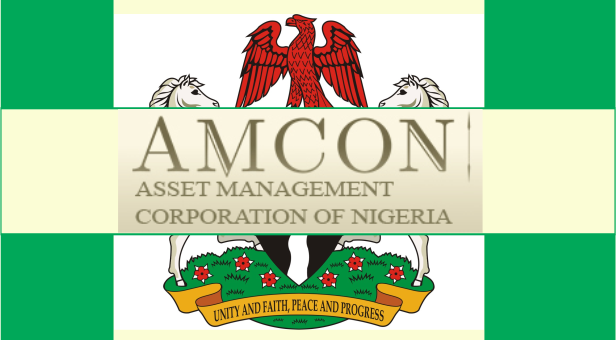- CJN, Appeal Court President Advise AMCON on Debt Recovery
In a move that will enable the Asset Management Corporation of Nigeria to meet its debt recovery mandate before its sunset period, the Chief Justice of Nigeria, Justice Walter Onnoghen, and the President of the Court of Appeal, Justice Zainab Bulkachuwa, have called on AMCON to leverage the Alternative Dispute Resolution mechanism now available for use in courts in the country.
Onnoghen and Bulkachuwa spoke in Abuja on Monday at an interactive session between justices of Supreme Court, Court of Appeal, AMCON and the National Judicial Institute. The discussion, which centred on how AMCON could effectively recover its outstanding N5.4tn debt, was themed: ‘Strengthening AMCON Recovery Drive.’
Onnoghen, in his opening address at the event, said the judiciary must be aware of the daunting task before AMCON, which required judicial support on the one hand, and for the corporation to think outside the box and come up with innovative ways of accomplishing its mission within the ambit of the law.
According to him, that is the only way AMCON will recover as much debts as possible within its defined lifespan.
“It is for this reason that I will encourage the use of the ADR, as part of the mechanism put in place to resolve asset management-related disputes in our courts,” he stated.
The CJN, who insisted that it was in the interest of the country that AMCON succeeded in its assignment, added, “Certainly, judicial time and capacity are scarce public resources; as such, repeated delays constitute waste of these precious resources. A better understanding of the current trends in this area of the law will go a long way in curbing delays and waste of judicial time and resources, thereby helping AMCON in fulfilling its mandate.
“The judiciary will continue to do its best to ensure that judges remain conversant with the AMCON regime towards engendering efficiency, uniformity and improvement in the quality of judicial services in our courts.”
Bulkachuwa expressed happiness for the interaction, which she said held the key to fast-tract debt recovery activities of AMCON and the eventual industrialisation of the Nigerian economy.
She stated, “As I congratulate the honourable and distinguished participants, I urge you to consider leveraging the Alternative Dispute Resolution infrastructure that is now available in ours courts towards your efforts on speedy recovery.”
“In fact, the Chief Justice of Nigeria has consistently encouraged the utility of the ADR in view of the delays in adjudication caused by the density of cases in the dockets of the trial and appellate courts.”
She added, “The judiciary has been playing its constitutional role through dynamic and proactive but fair and objective interpretation and enforcement of the AMCON Act by expeditious determination of AMCON cases and the enactment of AMCON Practice Directions both at the Federal High Court and the Court of Appeal as well as the Supreme Court.
“I am aware that the CJN is also considering an exclusive Practice Direction for AMCON at the Supreme Court. In the meantime, I am also aware that the CJN has advised AMCON lawyers to adopt the fast-track window for all AMCON appeals at the Supreme Court. In the Court of Appeal, I have since issued a circular directing the expeditious disposition of all AMCON appeals and I am aware that the circular is being effectively implemented.”
The Managing Director, AMCON, Ahmed Kuru, had earlier reminded the justices that the corporation currently had a lot of pending cases at the Federal High Court because its obligors were deliberately raising issues that would cause delay in justice, believing that by the time AMCON started addressing the substantive matter, things would have changed.
He stated, “AMCON currently has over 3,000 cases pending at the Federal High Court. Given the litigious tendency of our obligors, we anticipate that more than 50 per cent of the cases will proceed to the Court of Appeal and eventually the Supreme Court.
“We hope that the special Practice Direction issued by the President of the Court of Appeal will be very instrumental to speedy determination of the eventual appeals. The Practice Direction prescribed three months for concluding all AMCON matters. If the national assignment of recovering over N5tn of bad debts will be achieved, the Practice Direction needs to be strengthened and encouraged.”


 Billionaire Watch3 weeks ago
Billionaire Watch3 weeks ago
 Startups4 weeks ago
Startups4 weeks ago
 News4 weeks ago
News4 weeks ago
 News4 weeks ago
News4 weeks ago
 Bitcoin4 weeks ago
Bitcoin4 weeks ago
 Naira4 weeks ago
Naira4 weeks ago
 Forex3 weeks ago
Forex3 weeks ago
 Treasury Bills4 weeks ago
Treasury Bills4 weeks ago
























